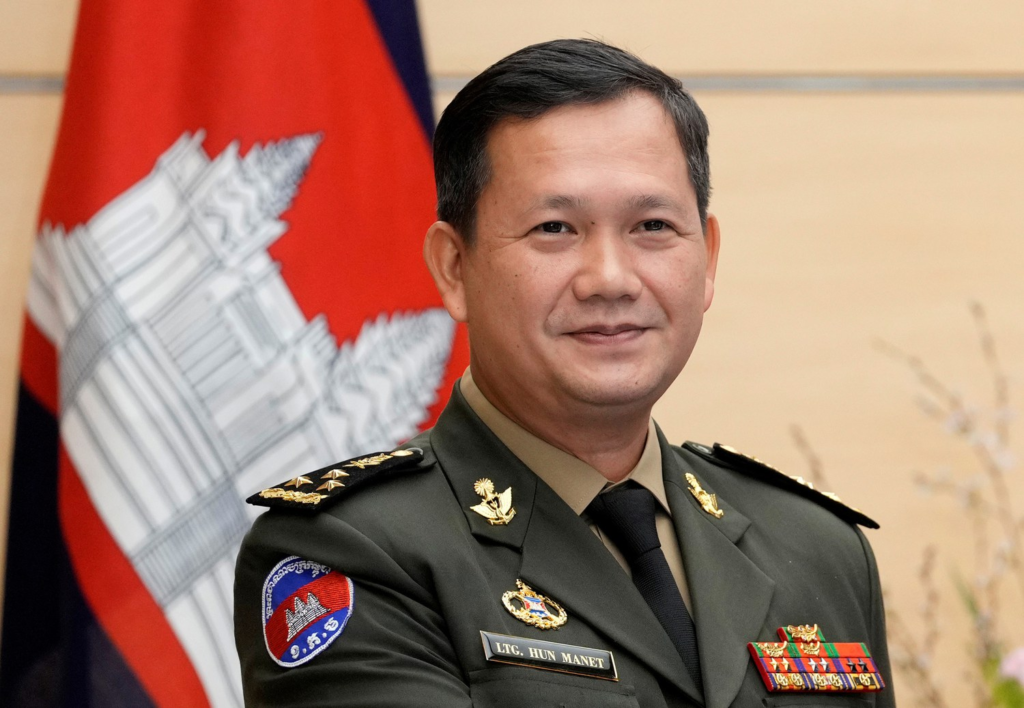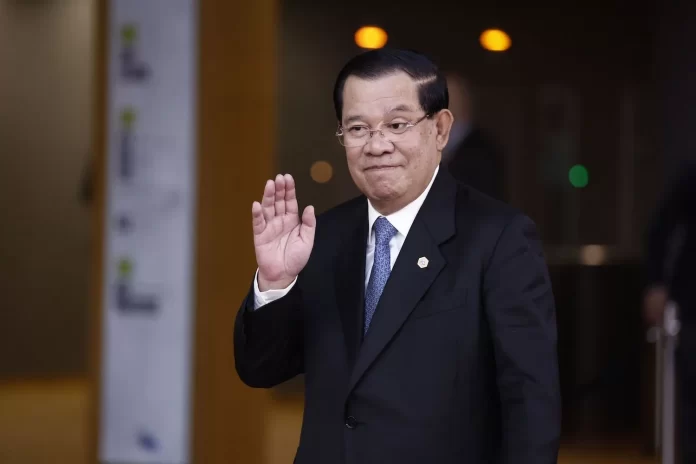In a surprising turn of events, Cambodia’s Prime Minister Hun Sen, one of the world’s longest-serving leaders, has announced his resignation, paving the way for his son’s ascension to power. After almost four decades of authoritarian rule, the 70-year-old leader stated that his eldest son, Hun Manet, will be appointed as the new prime minister on August 10th. This dynastic succession marks a historic moment for Cambodia, as it will be the first transfer of power in the nation in over four decades.
The announcement came just three days after Hun Sen’s ruling party secured all seats in an election that was widely seen as uncompetitive, with the only credible opposition party having been disqualified from participating. This recent victory further solidifies the ruling Cambodian People’s Party’s grip on power, but also raises concerns about the state of democracy and civil liberties in the country.
Hun Manet, 45, who was until recently the commander of the Royal Cambodian Army, has been groomed for the role of prime minister for some time now. Taking a leading role in the recent election campaign alongside his father, he appears to be following in his father’s footsteps when it comes to consolidating power. Critics worry that the dynastic succession may perpetuate the same authoritarian practices and lack of political plurality that have characterized his father’s rule.

While some speculate that Hun Manet’s Western education might lead to a more open and receptive approach to human rights, analysts remain skeptical. His time at the prestigious US military academy West Point and the University of Bristol may have exposed him to different perspectives, but he has yet to demonstrate any concrete evidence of a departure from his father’s policies. The international community, including the US and the EU, has consistently condemned Cambodia’s lack of democratic processes and the suppression of civil liberties under Hun Sen’s rule.
The outgoing Prime Minister, in his resignation announcement, cited the possibility of causing instability as the reason behind stepping down. However, political analysts argue that despite relinquishing the prime ministerial position, Hun Sen is likely to retain ultimate control through his leadership of the ruling Cambodian People’s Party. This power consolidation raises concerns about the prospects for genuine political reform and the future of human rights in Cambodia.
As the international community grapples with the implications of this dynastic transition, the situation in Cambodia remains complex and uncertain. While some hope for a new era with a more open and democratic leadership, others fear that this succession is merely a continuation of the status quo. Only time will tell whether Hun Manet’s leadership will bring about meaningful change or if Cambodia will remain entrenched in the grip of an enduring political dynasty. For the Cambodian people, the journey towards progress and freedom seems to be at a crossroads, with the world closely watching how this political saga unfolds.


